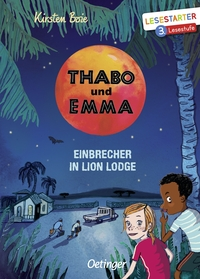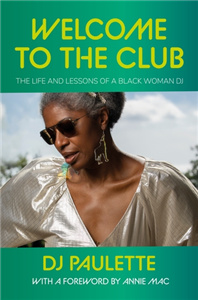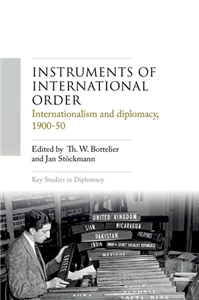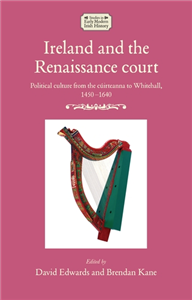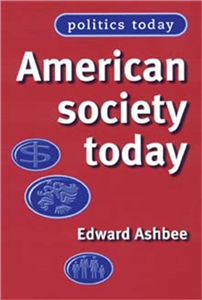Your Search Results
-
Sarah McKenzie Literary Agency
Sarah McKenzie Literary Management provides advice, advocacy and representation to Australian authors. As well as representing best-selling authors with a proven track record, we love to identify and champion talented new and emerging writers of children's fiction, commercial fiction, literary and narrative nonfiction.
View Rights Portal
-
Promoted Content
-
Promoted ContentLiterature & Literary StudiesNovember 2007
Thomas Hood and nineteenth-century poetry
by Sara Lodge, Rebecca Mortimer
-
 Trusted Partner
Literature & Literary StudiesJanuary 2014
Trusted Partner
Literature & Literary StudiesJanuary 2014Court and civic society in the Burgundian Low Countries c.1420–1530
by Andrew Brown, Graeme Small
This volume is the first ever attempt to unite and translate some of the key texts which informed Johan Huizinga's famous study of the Burgundian court, The Waning of the Middle Ages, a work which has never gone out of print. It combines these texts with sources that Huizinga did not consider, those that illuminate the wider civic world that the Burgundian court inhabited and the dynamic interaction between court and city. Through these sources, and an introduction offering new perspectives on recent historiography, the book tests whether Huizinga's controversial vision of the period still stands. Covering subjects including ceremonial events, such as the spectacles and gargantuan banquets that made the Burgundian dukes the talk of Europe, the workings of the court, and jousting, archery and rhetoric competitions, the book will appeal to students of late medieval and early modern Europe and to those with wider interests in court culture, ritual and ceremony.
-
 Trusted Partner
July 2020
Trusted Partner
July 2020Thabo und Emma. Einbrecher in Lion Lodge
Lesestarter. 3. Lesestufe
by Kirsten Boie, Maja Bohn
Spürnasen aufgepasst: Thabo & Emma, die Helden von Kirsten Boie, ermitteln wieder! In der Lion Lodge geht es nicht mit rechten Dingen zu. Immer mehr Gäste beschweren sich, dass ihre Schlüssel einfach weg sind. Während die Erwachsenen sich um andere Dinge kümmern, verfolgen Thabo und Emma eine heiße Spur. Doch es braucht einen nächtlichen Einsatz, um Licht in dunkle Machenschaften zu bringen. Wird es den beiden gelingen, das Geheimnis um die verschwundenen Schlüssel zu lüften? Lesenlernen so spannend wie ein Kriminalfall. Erstlesebuch für fortgeschrittene Leseanfänger ab 8 Jahren. Perfekte Vorbereitung auf die Kinderbuch-Bestseller-Reihe "Thabo. Detektiv & Gentleman" ab 10 Jahren. Mit vielen Bildern und tollem Lesespiel im Buch. Das zeichnet die Lesestarter der 3. Lesestufe aus: Einfacher Satzbau. Fortgeschrittenes Textniveau. Erhöhter Textanteil fördert die Lesefähigkeit. Gelistet bei Antolin.
-
 Trusted Partner
Humanities & Social SciencesJanuary 2018
Trusted Partner
Humanities & Social SciencesJanuary 2018Noble society
Five lives from twelfth-century Germany
by Jonathan R. Lyon
This book provides scholars and students alike with a set of texts that can deepen their understanding of the culture and society of the twelfth-century German kingdom. The sources translated here bring to life the activities of five noblemen and noblewomen from Rome to the Baltic coast and from the Rhine River to the Alpine valleys of Austria. To read these five sources together is to appreciate how interconnected political, military, economic, religious and spiritual interests could be for some of the leading members of medieval German society-and for the authors who wrote about them. Whether fighting for the emperor in Italy, bringing Christianity to pagans in what is today northern Poland, or founding, reforming and governing monastic communities in the heartland of the German kingdom, the subjects of these texts call attention to some of the many ways that noble life shaped the world of central medieval Europe.
-
Business, Economics & LawApril 1905
The Acquisitive Society
by R.H. Tawney
This 1926 survey, written by a distinguished social and economic historian, examines the role of religion in the rise of capitalism. Arguing that material acquisitiveness is morally wrong and a corrupting social influence, the author draws upon his profound knowledge of labor and politics to show how concentrated wealth distorts economic policies. Colorful but credible, this study offers a timeless vision of alternative means toward a just economic, social, and intellectual order.
-
 Trusted Partner
Literature & Literary StudiesJune 2021
Trusted Partner
Literature & Literary StudiesJune 2021Sara Paretsky
Detective fiction as trauma literature
by Cynthia Hamilton
Sara Paretsky is known for her influential V.I. Warshawski series, which transformed the masculine hard-boiled detective formula into a vehicle for feminist values. But Paretsky does more than this. Her novels also illustrate the extent to which detective fiction acts as a literature of trauma, allowing Paretsky to address the politics of agency in ways that go beyond the personal, for trauma always has a social and a political dimension. Paretsky's work also exploits the way detective fiction mirrors the writing of history. Here, Paretsky uses the form to expose the partiality of historical accounts - whether they be personal, institutional, or national - that authorise 'forgetting' of a particularly insidious kind. Significantly, all these issues are explored within the framework of the traditional hard-boiled detective novel. As a result, Paretsky's achievement forces us to acknowledge the deeply subversive potential of detective fiction.
-
 Trusted Partner
2019
Trusted Partner
2019History of the Throw-Away Society
The drawback of consumption
by Wolfgang König
Sooner or later everything is thrown away. In the consumer society, however, usable and serviceable products that may be as good as new are also thrown away. Such behaviour is the result of a long-term process that has developed over a period of one-and-a-half centuries. The change was led by the USA, and the Federal Republic of Germany followed. It started at the turn of the last century with personal hygiene: articles such as toilet paper, sanitary towels, nappies and paper handkerchiefs. After the Second World War, a large number of other disposable articles were soon added, such as paper cups and plastic dishes, nylon stockings and pens, razor blades, beverage cans and much more besides. Wolfgang König shows how business and consumers have together made throwing things away perfectly normal – and discusses how the throwaway society may be overcome.
-
 Trusted Partner
Business, Economics & LawJanuary 2024
Trusted Partner
Business, Economics & LawJanuary 2024Welcome to the club
The life and lessons of a Black woman DJ
by DJ Paulette
In Welcome to the club, Manchester legend DJ Paulette shares the highs, lows and lessons of a thirty-year music career, with help from some famous friends. One of the Haçienda's first female DJs, Paulette has scaled the heights of the music industry, playing to crowds of thousands all around the world, and descended to the lows of being unceremoniously benched by COVID-19, with no chance of furlough and little support from the government. Here she tells her story, offering a remarkable view of the music industry from a Black woman's perspective. Behind the core values of peace, love, unity and respect, dance music is a world of exclusion, misogyny, racism and classism. But, as Paulette reveals, it is also a space bursting at the seams with powerful women. Part personal account, part call to arms, Welcome to the club exposes the exclusivity of the music industry while seeking to do justice to the often invisible women who keep the beat going.
-
 Trusted Partner
Humanities & Social SciencesApril 2026
Trusted Partner
Humanities & Social SciencesApril 2026Elites in civil society
A comparative perspective
by Niklas Altermark, Malin Arvidson, Jayeon Lee, Roberto Scaramuzzino
Where civil society is often seen as a driving force for equality, this book addresses a challenging topic: civil society elites. Drawing on a comprehensive study of Italy, Poland, Sweden, and the UK, this ground-breaking research investigates the often-overlooked power structures within civil society. By combining elite studies with civil society research, the book uncovers how a distinct civil society elite emerges and how it interacts with leaders in politics and business. The findings reveal a fascinating paradox. While this elite may be a powerful engine for social change, its integration into wider power circles risks reproducing the very inequalities it seeks to dismantle. By exploring how this elite can become disconnected from its grassroots, the book provides essential insights into the future of civil society and its democratic promise.
-
 Trusted Partner
Humanities & Social SciencesNovember 2024
Trusted Partner
Humanities & Social SciencesNovember 2024Instruments of international order
Internationalism and diplomacy, 1900-50
by Thomas W. Bottelier, Jan Stöckmann
During the first half of the twentieth century, world politics was reshaped in pursuit of a new international order. The ideological foundations of the 'new diplomacy' (and its fate during the interwar period) are well known. This book instead examines the practices of internationalism and diplomacy from the First Hague Conference of 1899 to the aftermath of the Second World War. By focusing on these practices, such as disarmament regimes or public diplomacy, and their use as instruments to build international order(s), it emphasises the constructed, contested, and experimental character of what subsequently became a standard repertoire of international politics. Essays from a range of interdisciplinary scholars address well-established principles such as self-determination, and also less prominent practices such as small arms control or parliamentary inquiry. The book makes a major contribution to the growing historiography on twentieth-century internationalism.
-
 Trusted Partner
Humanities & Social SciencesJune 2026
Trusted Partner
Humanities & Social SciencesJune 2026Instruments of international order
Internationalism and diplomacy, 1900-50
by Th. W. Bottelier, Jan Stöckmann
During the first half of the twentieth century, world politics was reshaped in pursuit of a new international order. The ideological foundations of the 'new diplomacy' (and its fate during the interwar period) are well known. This book instead examines the practices of internationalism and diplomacy from the First Hague Conference of 1899 to the aftermath of the Second World War. By focusing on these practices, such as disarmament regimes or public diplomacy, and their use as instruments to build international order(s), it emphasises the constructed, contested, and experimental character of what subsequently became a standard repertoire of international politics. Essays from a range of interdisciplinary scholars address well-established principles such as self-determination, and also less prominent practices such as small arms control or parliamentary inquiry. The book makes a major contribution to the growing historiography on twentieth-century internationalism.
-
 Trusted Partner
Humanities & Social SciencesJanuary 2013
Trusted Partner
Humanities & Social SciencesJanuary 2013Crime, Law and Society in the Later Middle Ages
by Anthony Musson, Edward Powell
This book provides an accessible collection of translated legal sources through which the exploits of criminals and developments in the English criminal justice system (c.1215-1485) can be studied. Drawing on the wealth of archival material and an array of contemporary literary texts, it guides readers towards an understanding of prevailing notions of law and justice and expectations of the law and legal institutions. Tensions are shown emerging between theoretical ideals of justice and the practical realities of administering the law during an era profoundly affected by periodic bouts of war, political in-fighting, social dislocation and economic disaster. Introductions and notes provide both the specific and wider legal, social and political contexts in addition to offering an overview of the existing secondary literature and historiographical trends. This collection affords a valuable insight into the character of medieval governance as well as revealing the complex nexus of interests, attitudes and relationships prevailing in society during the later Middle Ages.
-
 Trusted Partner
Humanities & Social SciencesAugust 2024
Trusted Partner
Humanities & Social SciencesAugust 2024Ireland and the Renaissance court
by David Edwards, Brendan Kane
Ireland and the Renaissance court is an interdisciplinary collection of essays exploring Irish and English courts, courtiers and politics in the early modern period, c. 1450-1650. Chapters are contributed by both established and emergent scholars working in the fields of history, literary studies, and philology. They focus on Gaelic cúirteanna, the indigenous centres of aristocratic life throughout the medieval period; on the regnal court of the emergent British empire based in London at Whitehall; and on Irish participation in the wider world of European elite life and letters. Collectively, they expand the chronological limits of 'early modern' Ireland to include the fifteenth century and recreate its multi-lingual character through exploration of its English, Irish and Latin archives. This volume is an innovative effort at moving beyond binary approaches to English-Irish history by demonstrating points of contact as well as contention.
-
 Trusted Partner
Humanities & Social SciencesSeptember 2021
Trusted Partner
Humanities & Social SciencesSeptember 2021Counter-terrorism and civil society
by Scott N. Romaniuk, Emeka Thaddues Njoku
-
 Trusted Partner
Children's & YA
Trusted Partner
Children's & YAThe Candy Guild (1). The Magic Pact
by Tanja Voosen/ Viktoria Gavrilenko
The most magical adventure since the discovery of chocolate! Do you believe in magic and miracles? Everyone in the little town of Belony takes magic and miracles for granted – everyone except Elina, who thinks it’s all a load of nonsense. That is, until her nervous neighbour Charlie happens to get hold of a bar of chocolate that has a very strange effect on her. Suddenly Elina is convinced that Charlie has fallen under a spell. Of all people, it’s shy Robin who comes to the girl’s rescue. He is a member of a Candy Guild family – people who have the ability to create magic sweets that will help others. This is how he knows that only the mysterious Candy Guild can lift the curse on Charlie. With a suitcase full of magic sweets, the three of them set out on a dangerous quest. Because not everyone keeps to the pact that magic sweets should only be used to do good… The Candy Guild. The Magic Pact is the first in a new series of magic-fantasy books for children of 9+ - as enchanting as chocolate and as wild as a Christmas cracker!
-
 Trusted Partner
Children's & YA
Trusted Partner
Children's & YAThe Candy Guild (2). The Lost Recipe
by Tanja Voosen/ Viktoria Gavrilenko
Magical sweets and real miracles? Elina has experienced them both in Belony, and now she can hardly wait to dip deeper into the world of the candy crafters. But it’s not long before a new problem arises, because just before Robin’s first candy crafting examination, his magic tool goes bust. Old Mr Snotty knows where they can get help, and he takes Elina and her friends to Bittersweet Avenue. It quickly becomes clear, though, that not all candy crafters are well disposed towards “ungifted” people. There are also rumours about the return of the mysterious Otherwise Society, which has tried once before to bring down the mighty Candy Guild. When Mr Snotty suddenly disappears without a trace, it’s up to Elina, Charlie and Robin to follow the clues he has left behind for them. They soon realize that there is a reason for his disappearance, because the Otherwise Society is looking for something in particular – and Elina, Charlie and Robin have the key to this something in their hands…
-
 Trusted Partner
Trusted Partner
-
 Trusted Partner
Humanities & Social SciencesNovember 2020
Trusted Partner
Humanities & Social SciencesNovember 2020British civic society at the end of empire
by Anna Bocking-Welch, Andrew Thompson
-
 Trusted Partner
Humanities & Social SciencesOctober 2002
Trusted Partner
Humanities & Social SciencesOctober 2002American society today
by Edward Ashbee, Bill Jones
American society today provides a balanced introduction to the defining features of contemporary American society. Includes the ways in which the US can be considered 'exceptional' - the character of the 'American dream', the role of ethnicity and race, and the differences between the regions. Considers in depth a number of contemporary debates including the claim that the US economy has lost its capacity to generate wealth and stimulate mobility, that there has been a process of civic disengagement as voluntary organisations have lost members, and that the traditional family is in decline. Includes a thorough investigation of the effects of the terrorist attacks of September 11 and their aftermath. Looks at the arguments put forward by those who assert that a common American identity has given way to a multitude of conflicting identities structured around factors such as race, ethnicity, gender and sexuality. ;








